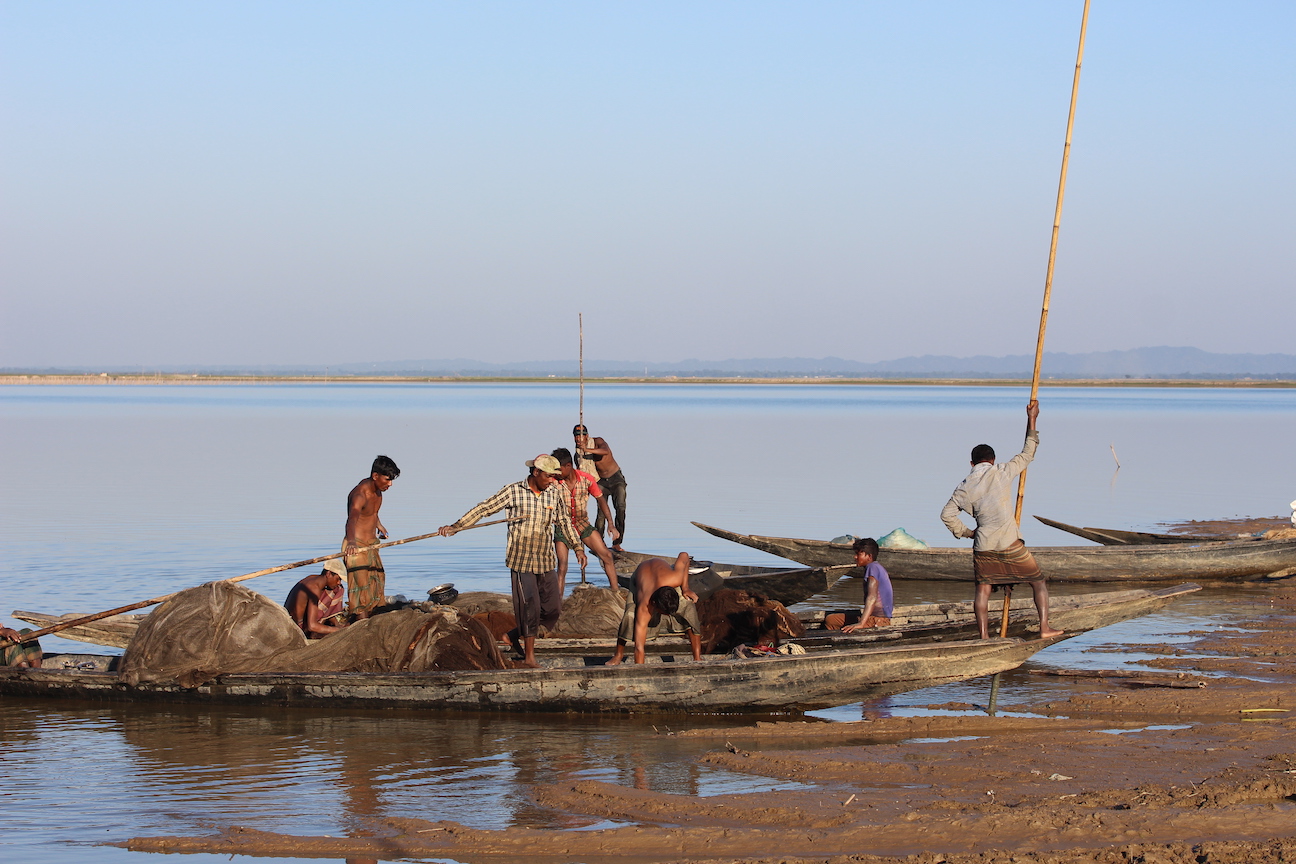
Kristen Dechert
Despite the COVID-19 pandemic, the Feed the Future Innovation Lab for Fish (Fish Innovation Lab) made strides toward its mission to reduce poverty and improve nutrition, food security, and livelihoods by supporting the sustainable development of fisheries and aquaculture systems.
“Some of our proudest accomplishments this year are the impressive results from our Quick Start projects, results that are informing further research and development with partner institutions, government officials, and other groups in the zones of influence,” said Mark Lawrence, director of the Fish Innovation Lab and professor of veterinary medicine at Mississippi State University.
With the Cold-Chain Analysis project, researchers from Mississippi State University, WorldFish, and Washington University in St. Louis, filled important gaps in understanding of the aquaculture value chain in Nigeria, learning that postharvest losses of catfish and tilapia are not as pronounced as previously presumed. Additionally, the team found that Nigerian aquaculture offers potential opportunities for greater investment in training and technical-skill development among women and youth to improve postharvest value, thus potential for improving livelihoods for these underrepresented groups and their families.
With the SecureFish project, researchers from Washington University in St. Louis, Pwani University, University of Rhode Island, Egerton University, and Mississippi State University, learned that small fisher households along the Kenyan coast, despite livelihood engagement in fisheries, lacked dietary diversity and were more malnourished in terms of stunted growth and underweight status than nonfishing households, especially for young children.
“From this project, we learned that cost was a major impediment to including fish in children’s diets,” said Lawrence. “Additionally, our researchers found that education and nutritional messaging with caregivers is a way to improve feeding behaviors for young children, who need the nutrient-rich food like fish for healthy brain development, a finding that one of our new projects, Samaki Salama, is building upon with social marketing for nutrition security among small fisher households on the southern coast of Kenya.”
The Zambia Feeds research team, led by Texas A&M University, Worldfish, Meridian Biotech, WorldFish Zambia, National Resources Development College, and Aller Aqua Zambia, conducted research on replacing fishmeal with sustainable feed ingredients for tilapia farming in Zambia, thus contributing to more sustainable aquaculture in the country and potentially worldwide.
“Essentially, fishmeal is feeding fish to fish, which is an unsustainable approach to aquaculture, and removes fish that could be used for human consumption and ecological health from oceans. Finding alternative fish feed ingredients is critical to creating a more sustainable aquaculture industry worldwide,” said Lawrence.
In a public-private partnership, the Zambia Feeds team conducted feed trials using Dy-Pro, a single-cell protein ingredient created by Meridian Biotech. Based on the research results, the Zambia Feeds team found that Dy-Pro could replace all of the fishmeal in tilapia diets without any significant negative effects on the growth or health of the fish.
“With this study, we learned that Dy-Pro, and potentially similar products, could help reduce pressure on fisheries stocks used for fishmeal without negatively impacting the quality of tilapia produced through aquaculture,” said Lawrence.
2020 was a difficult year with many people homebound and out of work due to COVID-19 and increases in hunger worldwide, but the Fish Innovation Lab remains hopeful about the future and the potential for fish to be a sustainable, healthy, and profitable source of nutrition for people.
Published January 8, 2021
